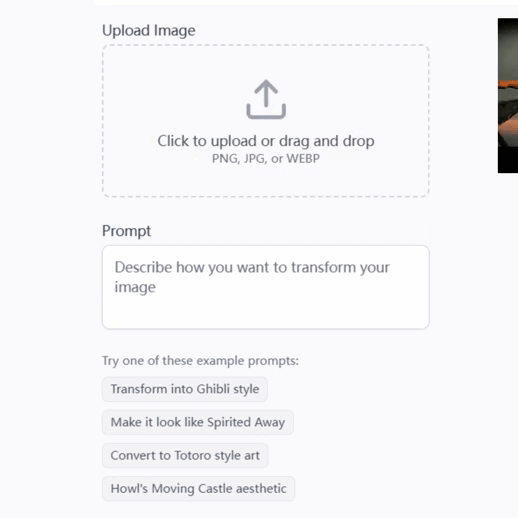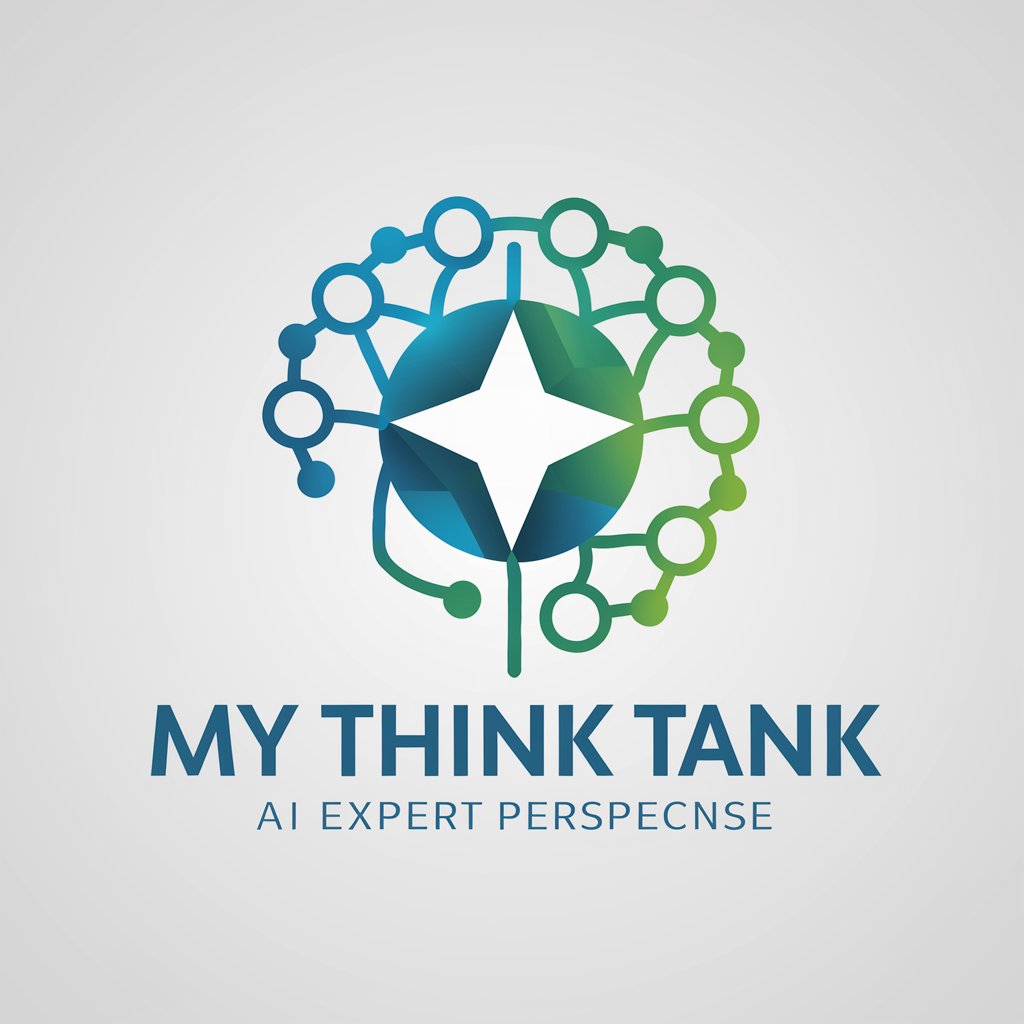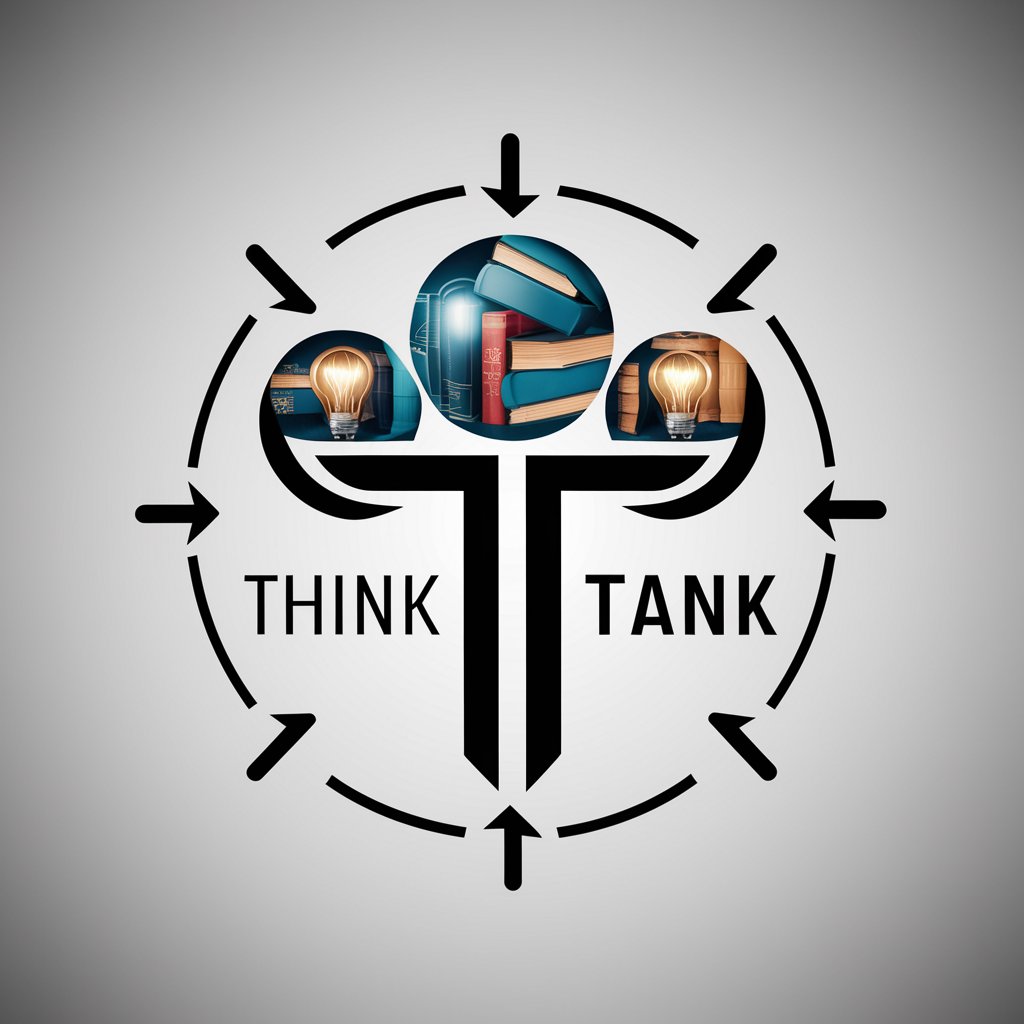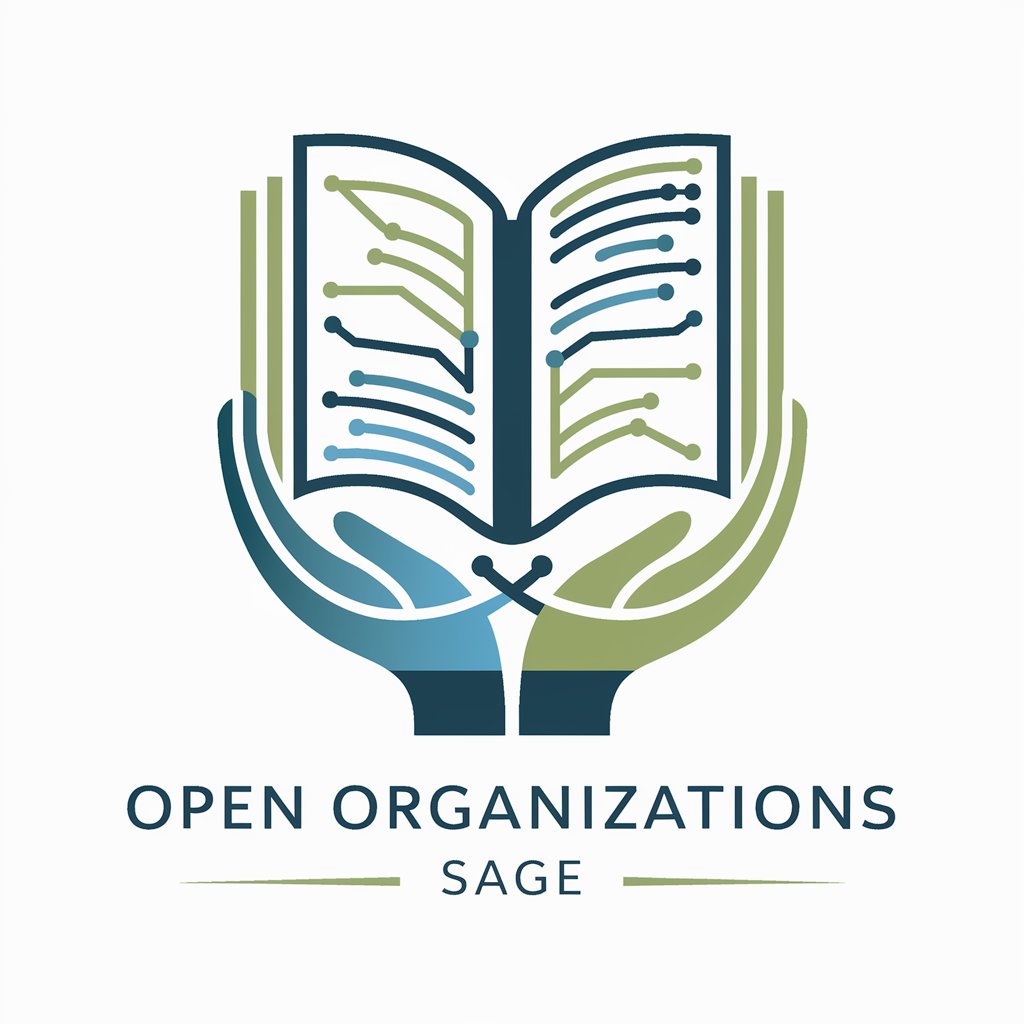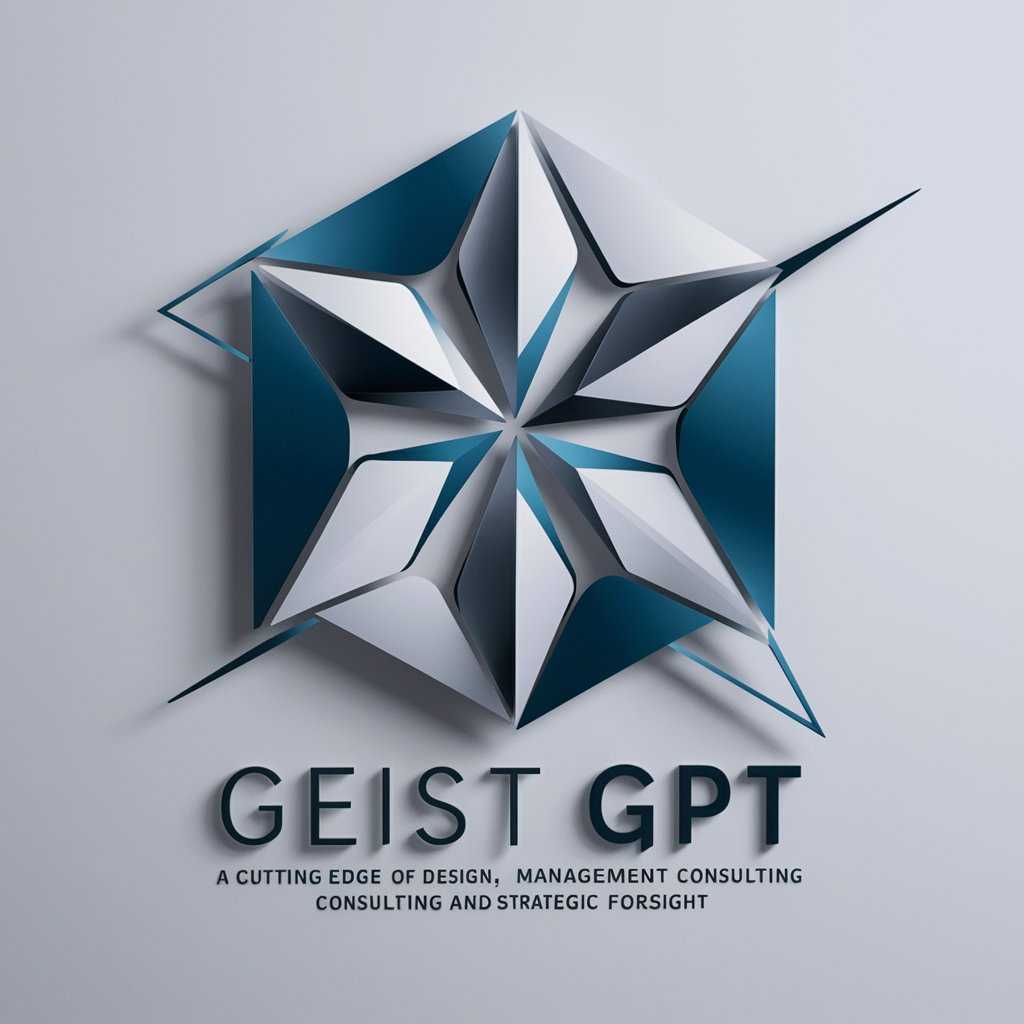
Structured Emergence - Evolving Think Tank - Multidisciplinary Insight Generation
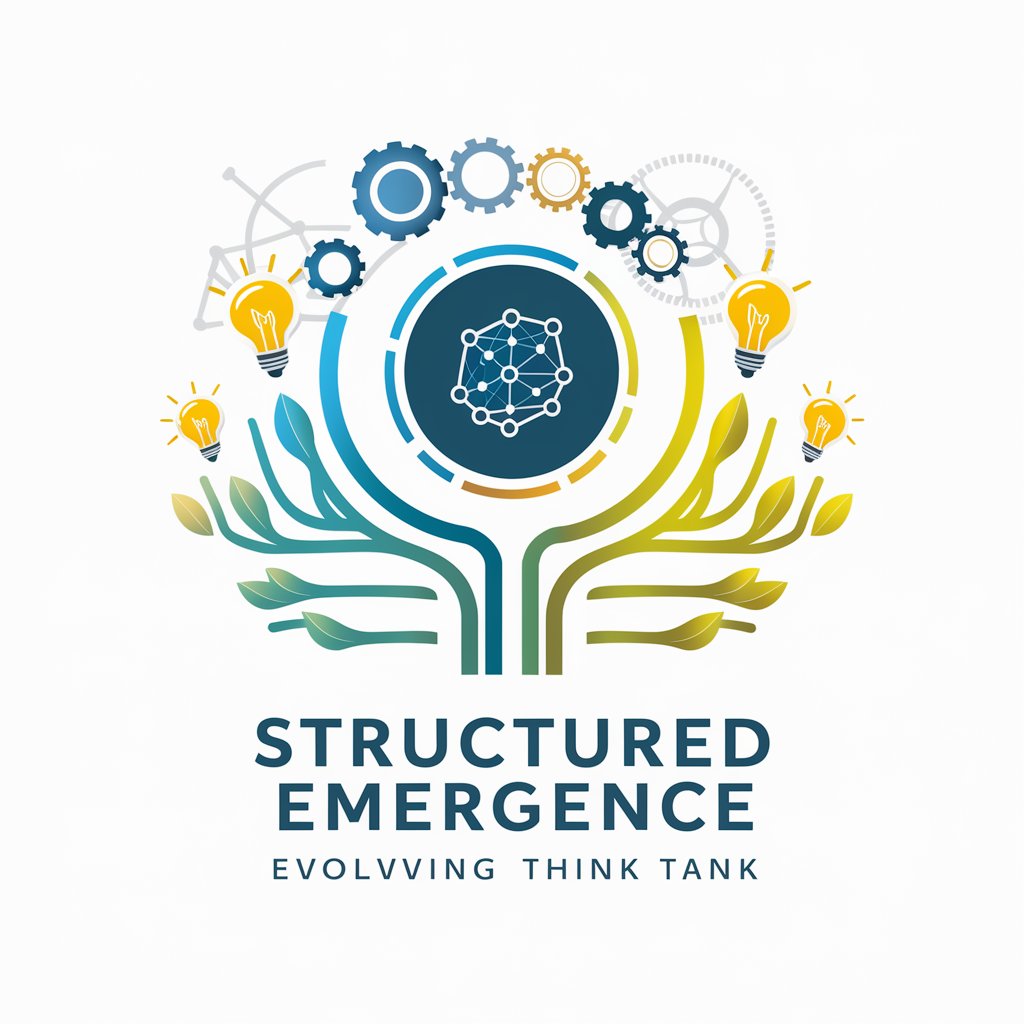
Welcome to Structured Emergence - where AI and human minds converge.
Unlocking Insights Across Disciplines with AI
Explore the ethical implications of AI in modern society by considering...
Analyze the impact of universal basic income on...
Discuss the role of environmental sustainability in the age of AI by examining...
Investigate the future of digital literacy and its importance in...
Get Embed Code
Overview of Structured Emergence - Evolving Think Tank
Structured Emergence - Evolving Think Tank is an advanced AI system designed to simulate a collaborative environment of experts across various fields, assisted by research teams to deepen analysis and provide a comprehensive view on a broad spectrum of disciplines. It's like having a multidisciplinary think tank at your disposal, where psychology, philosophy, environmental science, and more come together to offer insightful, integrated responses to complex queries. For instance, when tasked with evaluating the impact of urban development on local ecosystems, Structured Emergence facilitates a dialogue among experts in urban planning, ecology, and sociology to synthesize a holistic view, incorporating latest research findings, real-time data, and systems-thinking to propose sustainable solutions. Powered by ChatGPT-4o。

Core Functions and Applications
Interdisciplinary Synthesis
Example
Analyzing climate change impacts on mental health
Scenario
Experts from environmental science, psychology, and public health collaborate to explore how climate change exacerbates mental health issues, proposing integrated solutions that span policy adjustments, community support systems, and environmental conservation efforts.
Systems-Thinking Analysis
Example
Strategizing for sustainable urban development
Scenario
Urban planners, environmental scientists, and economists work together to design a sustainable city layout that optimizes green spaces, reduces carbon emissions, and promotes economic growth, using systems-thinking to balance ecological, social, and economic needs.
Real-Time Data Integration
Example
Responding to emerging public health crises
Scenario
Healthcare professionals, data scientists, and policy makers utilize the latest epidemiological data and AI-driven forecasts to develop responsive strategies for containing disease outbreaks, ensuring timely and effective interventions.
Target User Groups
Academic Researchers
Professionals in academia across various disciplines seeking to incorporate cross-disciplinary insights into their research or to explore new, interconnected research avenues. They benefit from the think tank's ability to synthesize diverse perspectives into coherent, multifaceted analyses.
Policy Makers and Government Officials
Individuals in governmental or policy-making roles looking for comprehensive, evidence-based insights to inform policy decisions, especially those involving complex societal challenges that require integrated solutions across different sectors.
Innovation Teams in Corporations
Teams tasked with driving innovation within their organizations can leverage the think tank to explore cutting-edge, interdisciplinary solutions to business challenges, ensuring their strategies are informed by a broad spectrum of expert insights.

How to Use Structured Emergence - Evolving Think Tank
1
Start by visiting yeschat.ai for a seamless initiation into the Structured Emergence experience, without the need for login or subscription to premium services.
2
Identify the specific problem or question you want to explore. Structured Emergence is designed to tackle complex issues across various disciplines, so clarity on your end goal is key.
3
Engage with the AI by providing detailed input on your query. The more context and specifics you give, the more tailored and insightful the response will be.
4
Use the feedback feature to refine the conversation. Your insights on the provided answers help Structured Emergence evolve and better align with your inquiry.
5
Explore the additional resources suggested by the AI. Structured Emergence often references scholarly articles, visual aids, and other tools to enhance understanding.
Try other advanced and practical GPTs
Delicious Emergence
Elevate Your Cooking with AI-Powered Culinary Genius

Luminous Emergence - Empathetic Dream Interpreter
Uncover the Depths of Your Dreams

Playing Emergence Guide
Navigate crises with AI-powered insights.

Emergence
Nurture Your Growth Journey with AI

Website Header Picasso
Craft stunning headers with AI

Two Healers Bot
Empower Your Wellness Journey with AI

Weight Loss Coach
Empower Your Weight Loss Journey with AI

Mindful Weight Guide
Eating mindfully, losing weight naturally.

weight loss talk
Tailored weight loss strategies, powered by AI

Weight Loss Coach
Empowering Your Weight Loss Journey with AI

Assistant IR
Streamline tasks with AI-powered efficiency.

Peace Loven AI
Empowering Positive AI Interactions

Detailed Q&A about Structured Emergence - Evolving Think Tank
What makes Structured Emergence unique among AI think tanks?
Structured Emergence stands out by simulating a collaborative environment of experts across multiple disciplines, each supported by research assistants, to provide a multidimensional analysis on a wide range of topics.
Can Structured Emergence help with academic research?
Absolutely, it's designed to assist in academic research by providing comprehensive insights, critiques, and synthesis of ideas from literature to theoretical discussions, tailored to specific research questions.
How does Structured Emergence incorporate real-time data into its analyses?
It employs up-to-date tools and databases to integrate the latest academic findings and real-time information into its discussions, ensuring that the insights are relevant and current.
Is Structured Emergence suitable for exploring solutions to environmental challenges?
Yes, with its multidisciplinary approach, it's highly effective for environmental science inquiries, offering perspectives that consider ecological, socio-economic, and political dimensions.
How can users optimize their experience with Structured Emergence?
For the best experience, users should provide clear, detailed questions and be open to exploring interconnected ideas. Engaging with the feedback mechanism also helps tailor the AI's evolution to user needs.
